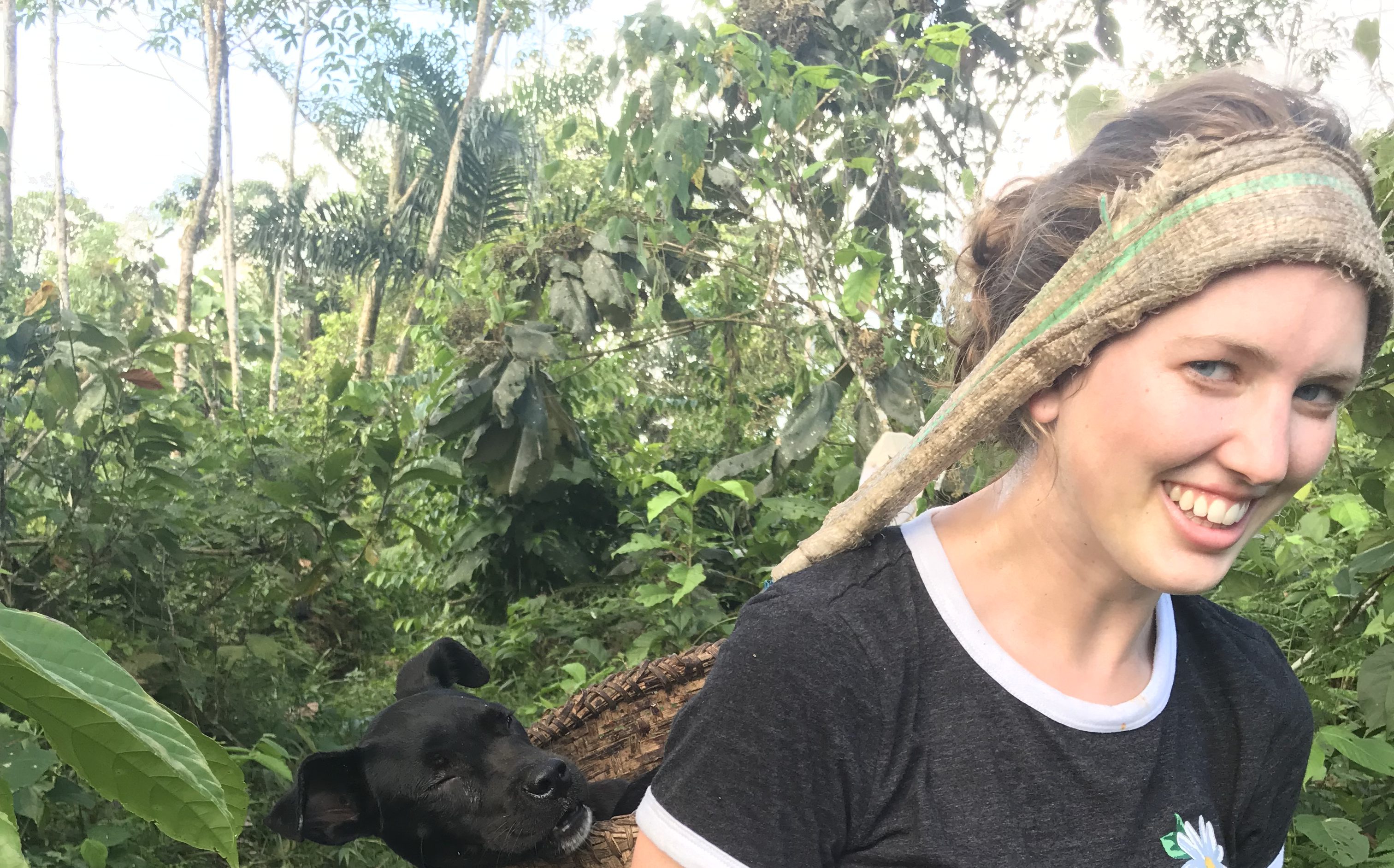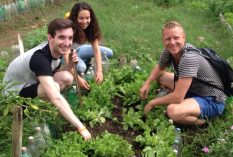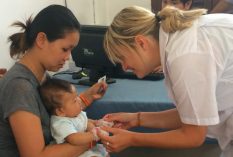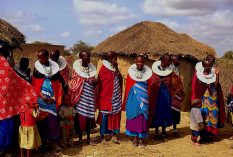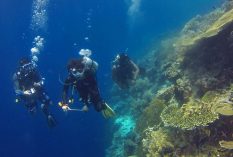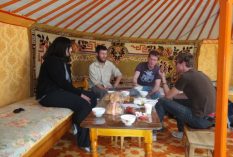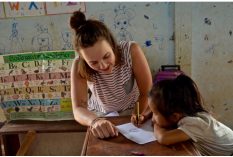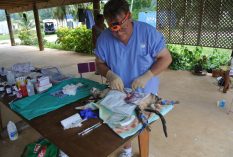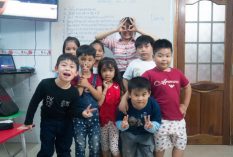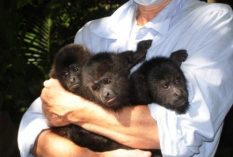Google is a saint. I remember sitting down in my living room, stressed out about all the pressure I felt to pursue more schooling after I just finished sixteen years straight of intense schooling and focus. Why did I feel like I needed to go back?! It was my time to continue doing something I love – traveling. But not just to pin another place on my map on my wall.
But why is Google a saint? You can type whatever you want and it will answer you. With my interests in health education, reaching out to people who don’t have luxurious hospitals and clinics surrounding them, sports, and art, I typed in exactly what I wanted in the search box. The first result to come up lead me to Global Nomadic then to the project, and the rest was history…!
It was a dream to move to a Spanish-speaking country for at least a few months after having experienced a short mission trip to Nicaragua a few years back. Something about Latin America inspires and intrigues me. So I had no issue looking into Ecuador. Super busy at home trying to fund myself independently, I didn’t have any time to create expectations. All I knew was I would be speaking an insane amount of Spanish, dancing salsa, playing soccer, living with a host family, and exploring careers in a random country in South America.
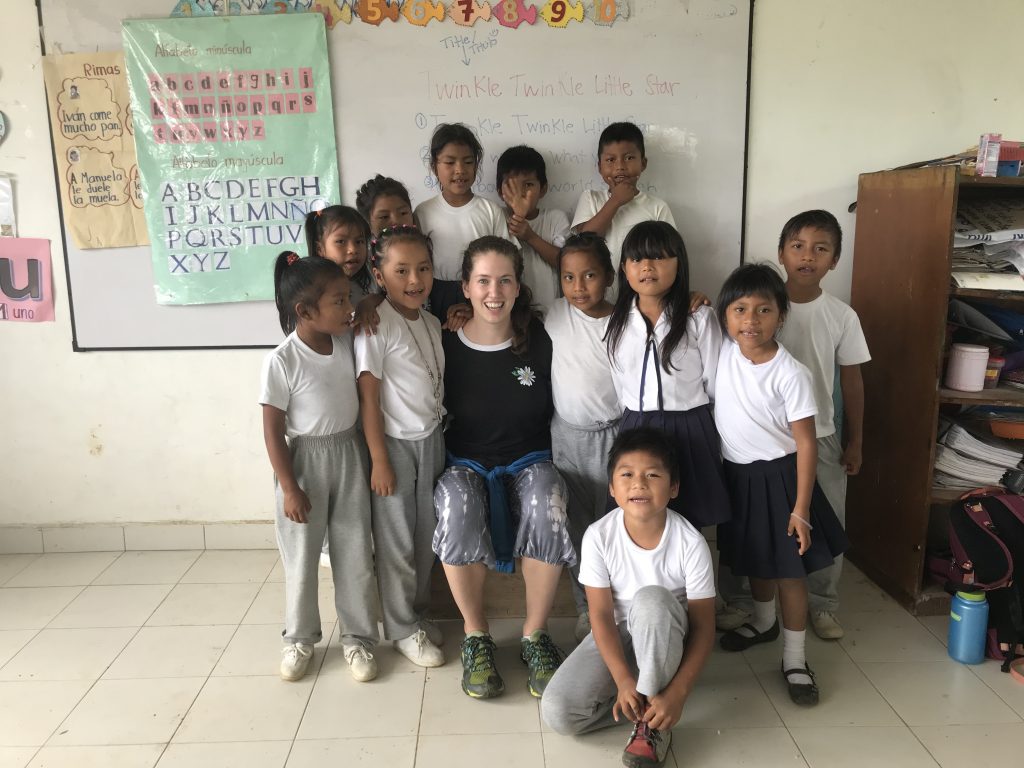
After a valuable and thorough orientation by the wonderful team in Tena, Ecuador, I felt prepared for this new adventure I was to live. I arrived at my host house, which at first felt like it was in the middle of nowhere. Women were carrying canisters from their foreheads, my house was a treehouse, and my family consisted of more than 11 people. All of which I was surprised by. That first day, though, was the most memorable. I may have laughed the hardest I have ever laughed. The indigenous Kichwa family I welcomed me into their family so quickly; they became like family and will be forever. Living with this family has been by far the most valuable part of this internship because I learned about how to live simplistically without forgetting to care for myself and others, live happily without taking offense to any of the endless jokes, and live with purpose, initiation, and patience.
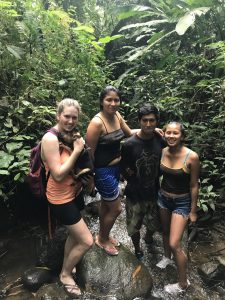
Walter – my host brother who was a tour guide, chef, and painter – inspired me tremendously to have curiosity, learn through experimenting and not through how-to videos online, care for everyone in the family, and use creativity in everything I do. At first, my ability to adjust to the mystery of where we were going or what we were doing for the day was challenged because I am a planner. Whenever I asked where we were going, I quickly learned to expect the unknown and throw in a laugh.
My host father, Ricardo, was a Yachak – a traditional healer. He performed Ayahuasca ceremonies and cleanings or “limpiezas.” My first experience of traditional medicine and healing was in San Pablo, the community I stayed in. There was an event to elect a “reina” or queen of the community. Ricardo and I woke at 4am to perform a limpieza of the authorities and important figures who were going to attend. These ceremonies are essentially performed to suck the negative energy out of bodies and spirits. Ricardo used his spiritual connections and special leaves to absorb the negative energy and leave the positive energy. Witnessing traditional practices like this left me feeling even more curious about all of the other indigenous and long-lived practices that still live on today within Kichwa culture.
My host sisters and mother inspired me with their work ethic and care for themselves and others. Marcelena, my host mother, worked in her chakra – self-sustaining, agroforestry farm – everyday starting at 6am. She would collect produce, feed the chickens, plant what needed to be planted, and tend to the land. Such a strong woman who will never be seen without a machete in her hands! My sisters, Glida and Karen, and host brother, Gandhi, had voluntarily spent hours of their time teaching me how to make beaded jewelry out of seeds, dance Kichwa including the lovely hair flips, dance salsa, and laugh at every mistake I made with my Spanish!
These women never complained and actually inspired me to care for others by hand washing clothes at home, making meals for my whole family, growing a garden, and creating my own artisan goods shop.
The other part of my internship consisted of spending time teaching English at my community’s school and spending time at a 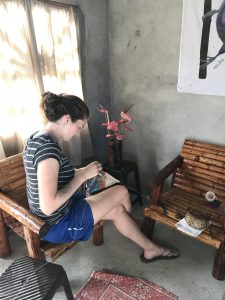 health center in the community. Both of these collaborations challenged me to take initiative and give back to my host community. Taking initiative was not easy. Sometimes I would overthink and convince myself that my involvement wasn’t necessary or worth too much. But I quickly turned those defeating thoughts around with the encouragement of the local staff, my program coordinator, and my host family. I used my ukulele to teach the English to local kids which they absolutely LOVED! I have come to realize that being around young people gives me so much positive energy and keeps me feeling young and vibrant. Then, I used my time in the health clinic to discover the health issues of my community and indigenous communities in general, learn medical Spanish, and be a helpful part of the team during medical brigades!
health center in the community. Both of these collaborations challenged me to take initiative and give back to my host community. Taking initiative was not easy. Sometimes I would overthink and convince myself that my involvement wasn’t necessary or worth too much. But I quickly turned those defeating thoughts around with the encouragement of the local staff, my program coordinator, and my host family. I used my ukulele to teach the English to local kids which they absolutely LOVED! I have come to realize that being around young people gives me so much positive energy and keeps me feeling young and vibrant. Then, I used my time in the health clinic to discover the health issues of my community and indigenous communities in general, learn medical Spanish, and be a helpful part of the team during medical brigades!
In addition to all of this, I spent time in the town of Tena, meeting other volunteers, playing sports with locals, dancing salsa, passing time in cafes, and always finding someone to talk to that brought some sort of light and hope and motivation to my day.
All of these experiences include people. People are what kept and keep me going. The energy of the Ecuadorian Amazon was like no other, and I struggle with the fact that I had to leave a place that brought me so much joy. It doesn’t take money, a big house, a busy schedule, or a fit body to be happy there. All you need is an open heart, a wide smile, and a willingness to laugh at yourself to feel like you belong in the local culture which is full of life. After four months of being in Ecuador, I became part of an extensive family that I know I will return to and I gained a plethora of new skills to use. Having already traveled to four continents and over 20 countries, where I grew up in Chicago, Illinois, and where I spent my time in San Pablo/Tena, Ecuador are two places I can genuinely consider I have family.
I was having a conversation with someone the other day, and we concluded that if you open your heart to the region, it will open its own back to you. I will be back, San Pablo and Tena! For now, keep playing soccer, laughing, and living life to the fullest!
Amazonian Traditional Medicine, Herbalism & Ethnobotany in Ecuador

